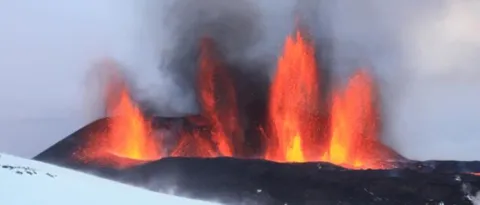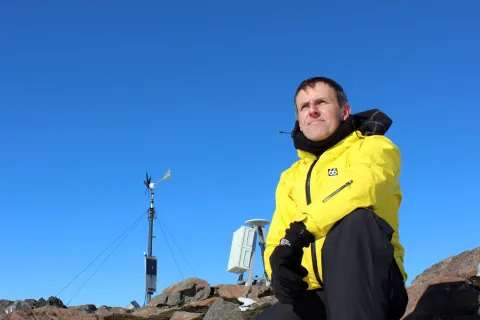
"The course is about methods to monitor volcanoes and magma movements in the roots of volcanoes. What are the signs of magma gathering leading up to an eruption, what measurements can detect such magma intrusion, and how can data from measuring instruments be used to predict the next eruption?"
So says Freysteinn Sigmundsson geophysicist at the University of Iceland who is the main instructor on the University's second course on edX, a leading international network in the field of MOOCs. The University of Iceland joined the edX network late last year; a leading non-profit online learning platform founded by Harvard and MIT. By joining the University of Iceland wants to increase access to dynamic and exciting study programmes, promote the University's work on an international level, and further develop teaching methods in line with rapidly changing technologies and society.
The new course is titled Monitoring Volcanoes and Magma Movement and is open for registration. Registering is very simple and participation is free of charge.
"In the new course we emphasize explaining measurements of earthquakes, tectonic movements, and volcanic gases in this context, and review examples of such measurements. Furthermore, the general structure of volcanoes and the underground movement of magma is discussed. The course is based on a series of short videos containing material on these factors, and projects connected to them," says Freysteinn who is a geophysicist at Nordvulk, the Noridic Volcanalogical Centre, at the Institute for Earth Sciences at the University of Iceland. It is fitting that the University offers a course in this field, seeing how Iceland is an active laboratory in this discipline, and Icelandic earth scientists are at the forefront in their field internationally.
The second edX course offered by the University
The goal of this course is to increase general knowledge on the nature of magma movement and volcano monitoring; both for the general public who is interested in such matters, and for professionals involved in volcano monitoring who wish to deepen their knowledge in the field.
This is the second course the University offers on edX. Close to 6,000 people participated in the first international online course offered by the University in Nordic medieval studies, where the main focus was on the exciting world of the Icelandic sagas.
Participation has exceeded all expectations and students came from all over the world. The largest group, however, comes from the United States, or over a thousand students. Most of the Europeans are from the United Kingdom, or ten percent of the student body; but registered participants are from Mexico, New-Zealand, Australia, India, Brazil, Argentina and numerous European countries. The youngest student was 13, and the oldest close to ninety.
